Explainer: What’s next for Israeli regime after ICJ genocide hearing?
By Ali Rezvanpour
South Africa this week dragged the Israeli regime to the International Court of Justice (ICJ) over ongoing genocide in the besieged Gaza Strip, presenting compelling evidence to back its case.
A team of lawyers representing the South African government accused Israel of genocide at the top UN court in the Hague, saying the regime was “intent on destroying Palestinians in Gaza.”
“The point is not simply that Israel is acting disproportionately. The point is that the prohibition on genocide is an absolute,” said Vaughan Lowe, one of the lawyers representing South Africa. “Nothing can ever justify genocide.”
Both South Africa and Israel are signatories to the 1948 Genocide Convention, which requires them not to commit genocide and to prevent and punish it. The regime in Tel Aviv, however, has used genocide as a weapon against Palestinians.
In an 84-page presentation, South Africa said Israel is committing genocide in Gaza, causing serious mental and bodily hurt, forced evacuation of people, widespread hunger, and bringing about “physical destruction” of people in the small besieged territory.
South African team, in their opening remarks, said they “place Israel’s genocidal acts and omissions within the broader context of Israel’s 25-year apartheid, 56-year occupation, and 16-year siege imposed on the Gaza Strip.”
What is the Convention on the Prevention and Punishment of Genocide?
The Convention on the Prevention and Punishment of the Crime of Genocide (CPPCG) is the first legal instrument that codifies genocide as a crime and the first treaty that was unanimously adopted by the United Nations General Assembly on December 9, 1948.
Its definition of genocide has been accepted by the International Criminal Court (ICC) and has been included in the domestic laws of several countries.
The provisions of this convention broadly reflect customary laws, and as a result are considered binding for all nations, both member and non-member states.
What is the definition of genocide?
Article 2 of the Convention on the Prevention and Punishment of the Crime of Genocide defines “genocide” as follows.
- Killing members of a national, ethnic, racial or religious group and causing serious physical or mental harm to them.
- Deliberate imposition of living conditions on a group calculated for its complete or partial physical destruction.
- Forced transfer of children.
Article 3 defines crimes punishable under the Convention as follows:
- Genocide and attempt to commit genocide.
- Direct and public incitement to commit genocide.
- Complicity in genocide
According to the Geneva Conventions, the Statute and the International Criminal Court's jurisprudence, such actions are certainly considered war crimes and the perpetrators are deemed war criminals.
In addition, when these heinous acts are carried out in the framework of the policy of a regime or organization and to spread such a policy, the title of crime against humanity is also applied to them and in this sense, the perpetrators can be prosecuted.
What has the Israeli regime done?
The Israeli regime, for its part, has engaged in all such actions that violate international law and human rights, including crimes against humanity. Intentional murder, extermination, deportation or forced transfer, imprisonment, torture and racial discrimination are some of the actions that this regime has committed to preserve its illegitimate existence, which amount to international crimes.
The human rights resolutions issued against Israel are full of requests, condemnations, expressions of regret and orders to end human rights violations, but the regime has refused to pay heed at the behest of its Western backers.
What is unfolding in the Gaza Strip today are crimes against humanity. The slaughter of children, the bombing of hospitals and schools, the forced displacement of people, the crippling siege, and the deliberate starvation of 2.3 million people.
More than 23,500 people have already been killed in Gaza in the past 100 days, a vast majority of them children and women. Healthcare practitioners, aid workers and journalists have also been killed deliberately by the occupation forces.
While the Arab world and Western countries that claim to defend human rights have closed their eyes to the genocide in Gaza, in a courageous act, the South African government brought the Zionist regime to the ICJ in The Hague on Thursday.
The hearing of South Africa's case against Israel came as genocide and war crimes by the occupation regime continued at an alarming pace.
With this action, Pretoria showed that the people of South Africa still remember and respect Nelson Mandela's words: "We know very well that our freedom is incomplete without the freedom of the Palestinians."
What should we know about the ICJ case against Israel?
- The International Court of Justice (ICJ) is the highest court of the United Nations and the main judicial pillar of the United Nations.
- According to the United Nations Genocide Convention, adopted in 1948, to which Israel is also a member, a deliberate attempt to destroy all or part of a society based on its nationality, ethnicity, race or religion is considered genocide and killing members of the community, causing serious physical or mental harm to its members, intentionally imposing living conditions by physically destroying them, forced migration of children from one community to another region are among the cases that can be examined in international courts.
- South Africa, by presenting an 84-page document, called Israel's actions for destroying a large part of the Palestinian land in Gaza City as genocidal in nature.
- This case also clearly deals with actions with examples of genocide, such as massacring Palestinians, inflicting serious mental and physical harm on them with the aim of physical destruction.
- The statements of the Israeli authorities that indicate their intention for "genocide" can be seen in this case. In addition to raising the issue of genocide, South Africa asked the court to order Israel to stop all its military actions in Gaza.
- South Africa's urgent request is for an investigation into war crimes committed in the Gaza Strip and an immediate ceasefire to end the genocide.
- The decision of the ICJ regarding the genocide in Gaza can introduce criminals and perpetrators of the genocide to the International Criminal Court. Such a ruling can result in the punishment of Zionist authorities, the isolation of Israeli companies, and even their sanctions and boycotts.
- At the same time, the verdict against Israel will increase the pressure on supporters of this regime, including the United States, and they will be prompted to reconsider their relations with Tel Aviv.
- For this reason, the United States continued to support Israel and objected to South Africa's case. John Kerby, the spokesman of the White House National Security Council, described it as "worthless" and "without any basis or evidence".
- The brave action of South Africa has increased the motivation of other countries of the world to hold the Zionist regime accountable.
- The international community's support for South Africa's action will encourage the ICJ in the way of confronting the US pressures and threats.
World awaits ICJ ruling in Israel genocide case @latifabouchakra reports from The Hague. pic.twitter.com/F4xN03YTht
— Press TV (@PressTV) January 13, 2024
What did South Africa say about Israel at ICJ?
After Israel's final “defense” at the ICJ, Ronald Lamolathe, South Africa's Minister of Justice said the Israeli regime has suffered a shameful defeat.
"We are confident that we have presented a convincing complaint, detailed in criminal detail by our lawyers and that Israel has failed miserably today,” he said.
The statements of this South African official came after the representative of Israel appeared in the second hearing of South Africa's complaint at ICJ and presented his arguments in rejecting South Africa's complaint.
The representative of South Africa emphasized in this court that the Zionist regime implements apartheid policies against the Palestinians of the Gaza Strip.
"Since 1948, Israel has systematically displaced and dispersed the Palestinian people and deliberately deprived them of their international right to self-determination. We are particularly concerned about Israel's discriminatory laws and policies that seek to apartheid the Palestinian people,” he stressed.
Israel and South Africa are both signatories to the convention. All parties who have signed the treaty have pledged not to commit genocide and to prevent and punish it by other parties.
The representative of South Africa stressed that genocide "is never declared in advance". He said that now "evidence for 13 weeks is at the disposal of the International Court of Justice" which shows that the Israeli regime has committed genocide.
Several countries including Turkey, Malaysia, Venezuela, Brazil and the Islamic Republic of Iran have supported South Africa's case against the Zionist regime.
The outcome of the hearing, experts believe, is going to favor South Africa. But irrespective of the outcome, the apartheid regime stands exposed.
Ali Rezvanpour is a Tehran-based political commentator and university teacher.
IRGC is on frontline against US, Israeli terrorism: Intelligence Ministry
One killed as Israeli airstrike hits southern Lebanon amid truce breaches
Iran says it has enough deterrence without nukes
EU’s IRGC listing shows elite force effective in foiling Israeli plots: Yemen
VIDEO | Europe hostile move against IRGC
VIDEO | Zionists against the NHS
Trump compromised by Israel, Epstein files reveal
Iran, China, and Russia to hold joint naval exercise


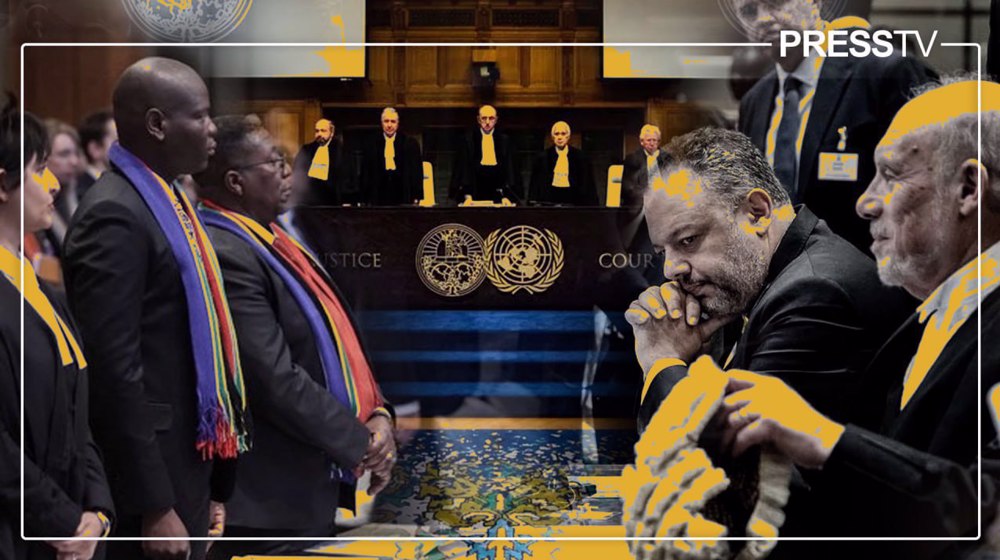
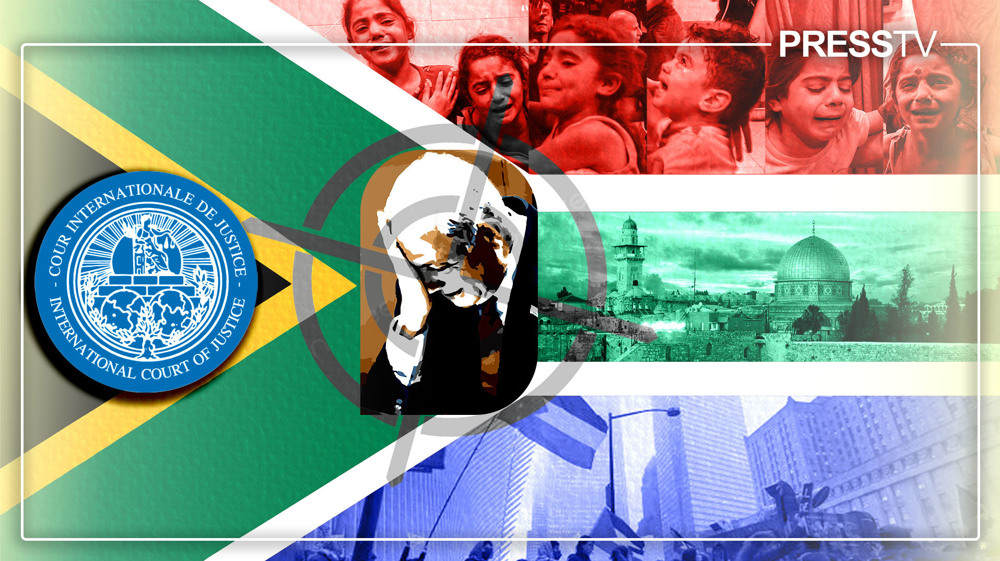
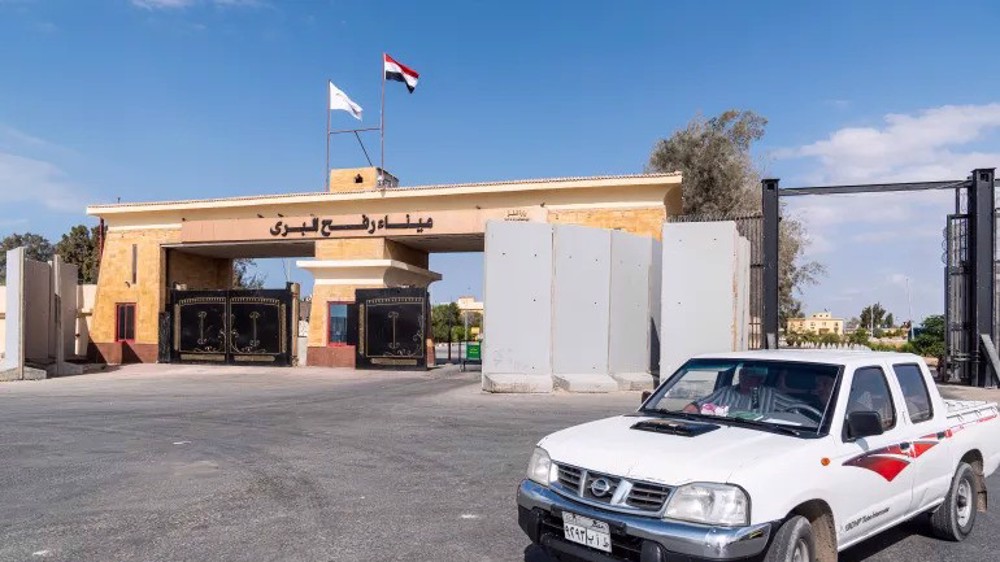
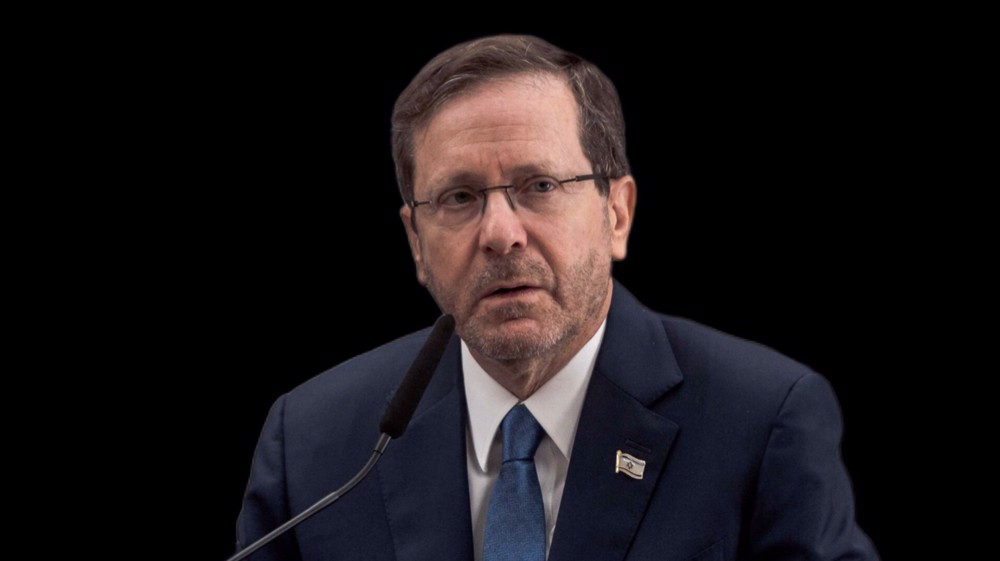




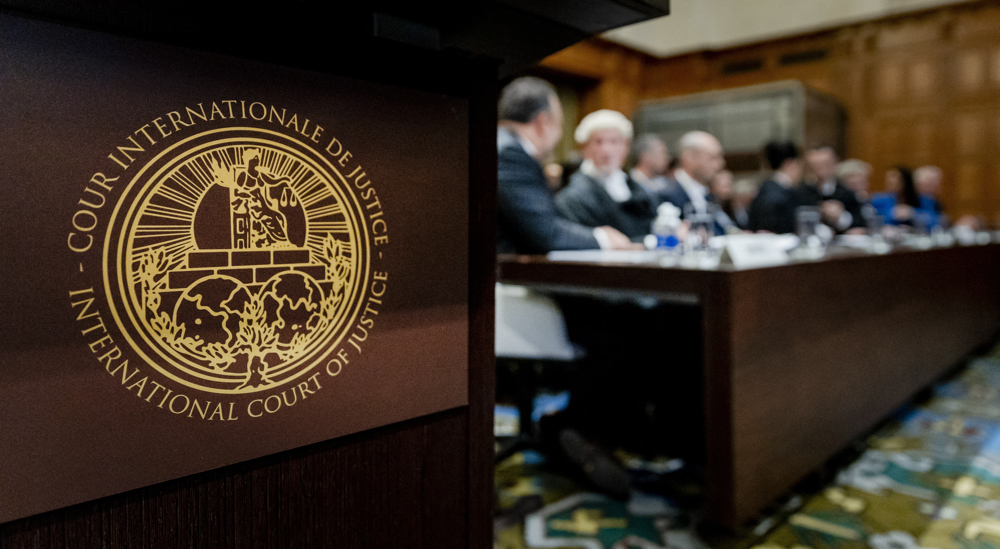
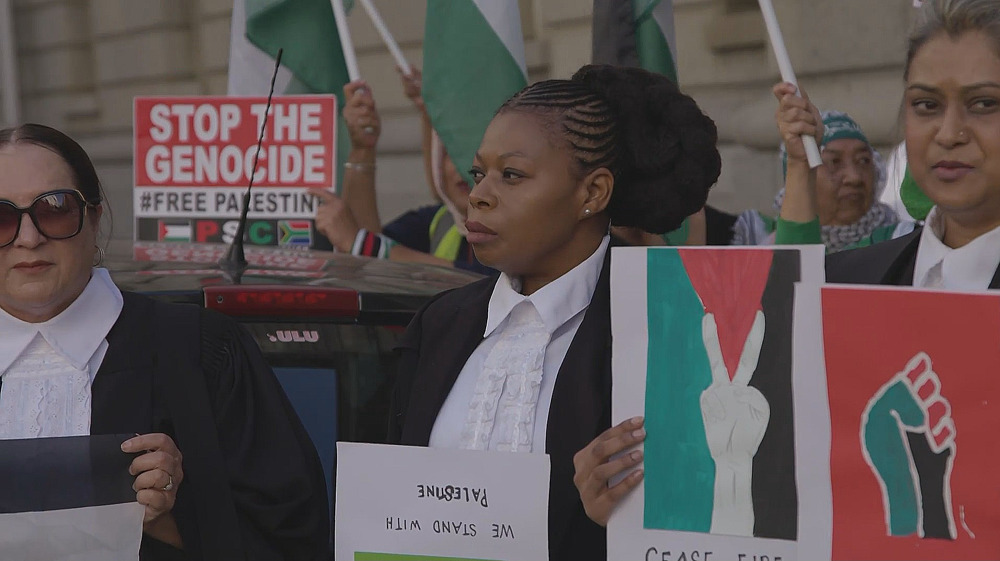
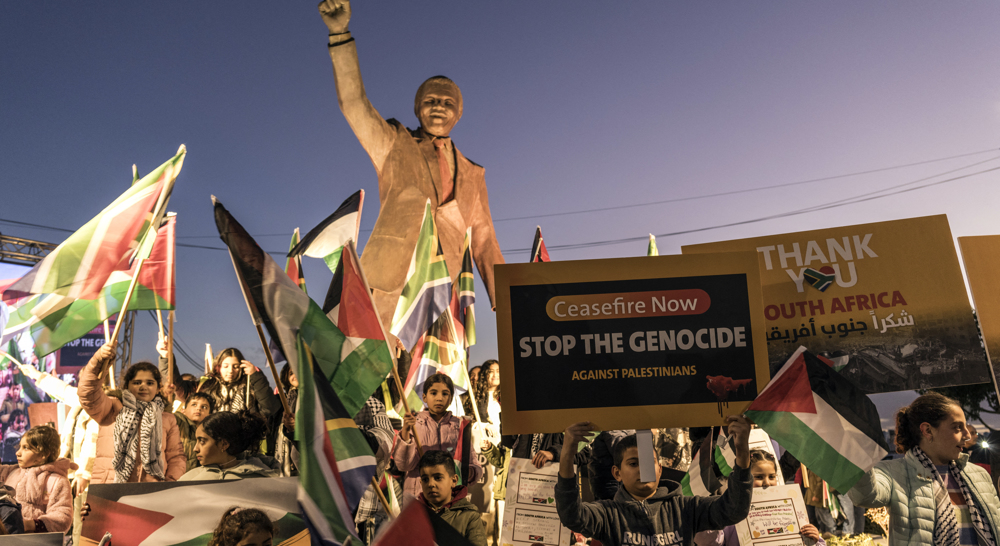
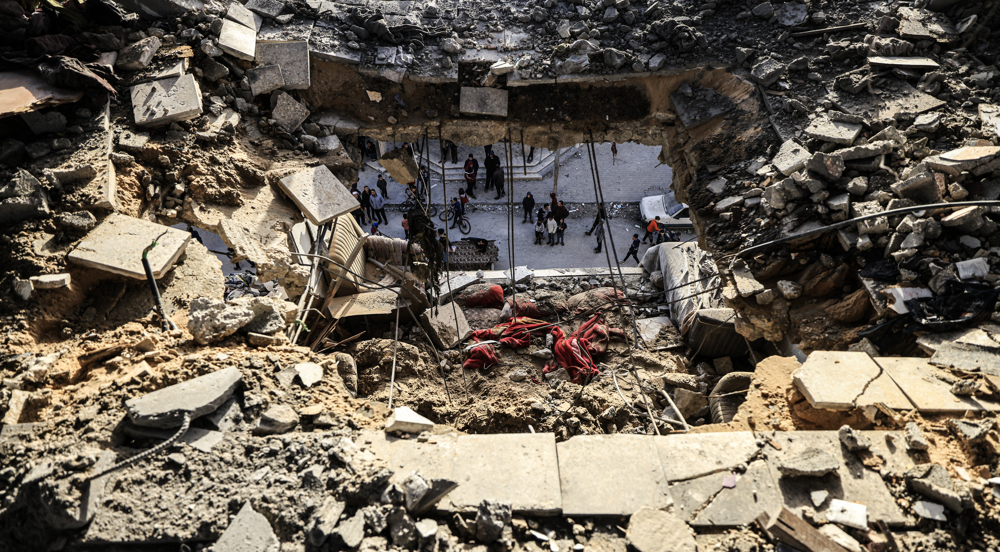
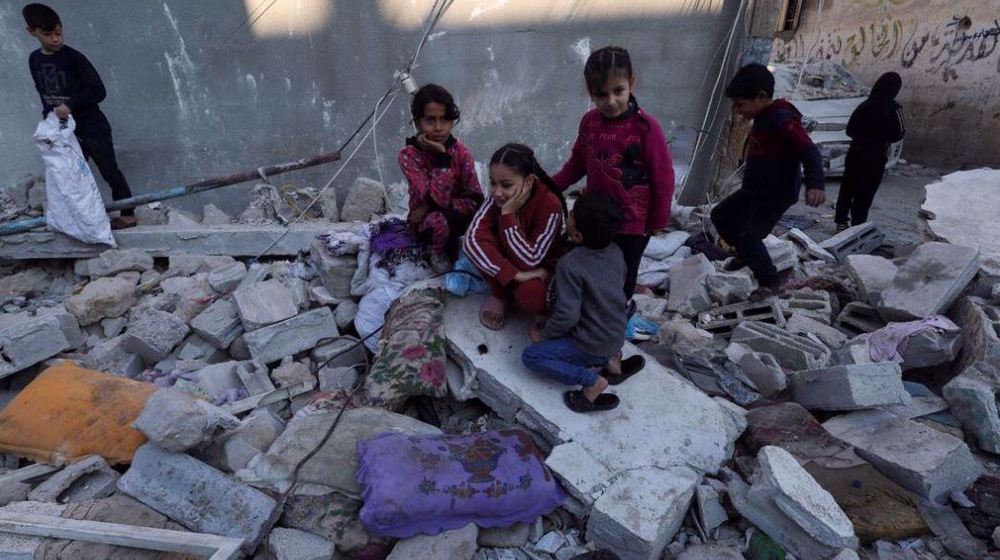

 This makes it easy to access the Press TV website
This makes it easy to access the Press TV website